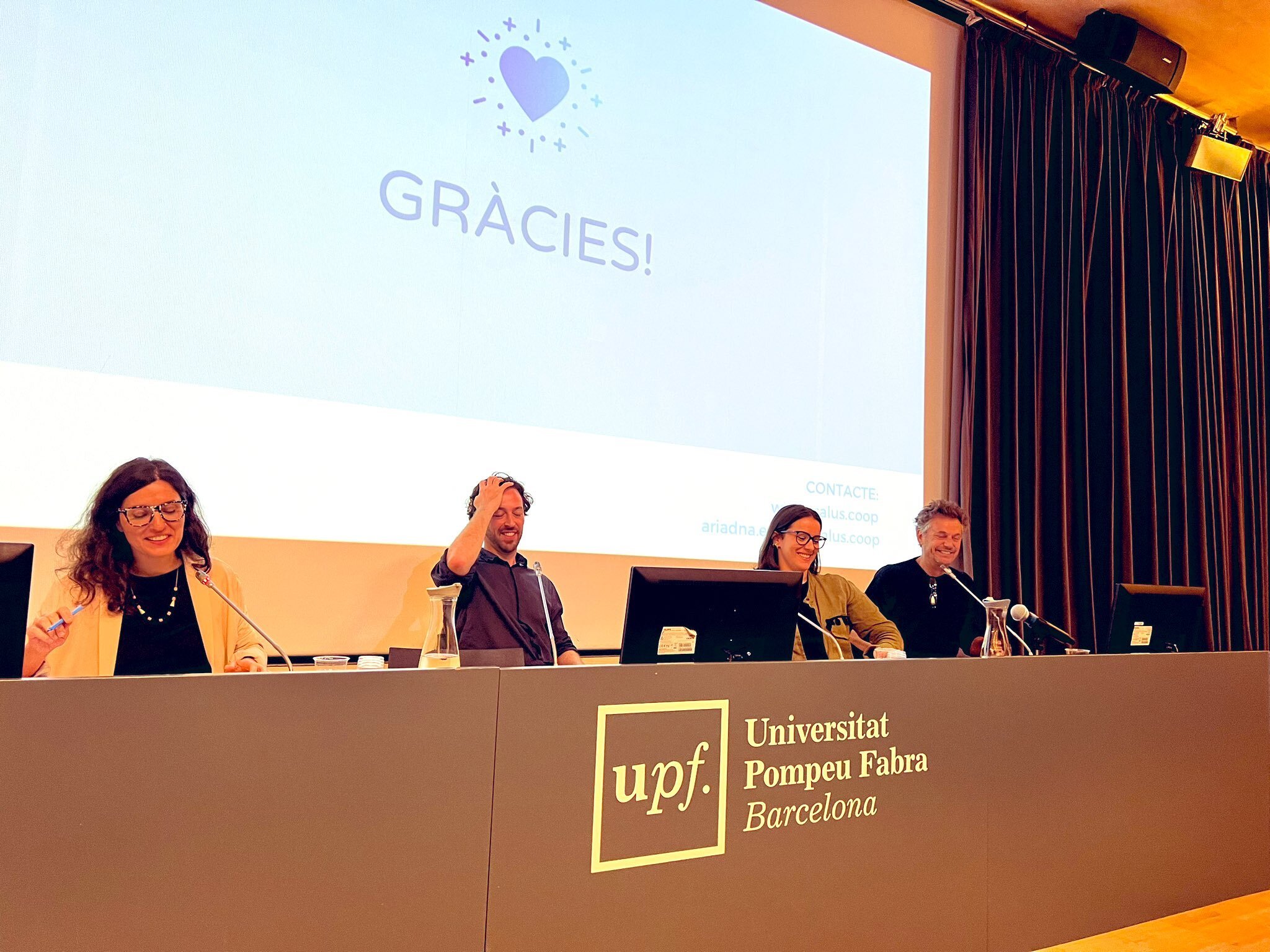Scientific research
Scientific research
The DATALOG case
The DATALOG case
5 de julio de 2024


The DATALOG project, funded under the "Ciutat Proactiva 2022" programme launched by the Bit Habitat Foundation of the Barcelona City Council, aims to enable the responsible sharing and reuse of data through new data governance mechanisms. The initiative represents a fiduciary entity operating as a data trust in Barcelona, acting as a data intermediary for the common good.
Data Usage and Management in Focus
The growing prominence of open data in governments and organisations is mobilising civil society to create new solutions for addressing social agenda challenges. In this context, DATALOG emerges with the goal of empowering citizens to take ownership of and make decisions regarding data on water, electricity, and gas consumption. The project promotes responsible usage, combats energy poverty, and fosters sustainability.
What is a Data Trust?
A Data Trust is a legal structure that facilitates the management and sharing of data. These institutions establish effective data governance mechanisms, enabling their members to take control over how their data is managed, shared, and utilised. Data trusts often address aspects of planetary well-being through innovative urban data management practices. In this vein, DATALOG enhances understanding of urban flows by making granular data accessible and providing analysis tools with a privacy-by-design approach. DATALOG exemplifies data trust in action, enabling the voluntary collection and sharing of data for the common good and research purposes.
The DATALOG project, funded under the "Ciutat Proactiva 2022" programme launched by the Bit Habitat Foundation of the Barcelona City Council, aims to enable the responsible sharing and reuse of data through new data governance mechanisms. The initiative represents a fiduciary entity operating as a data trust in Barcelona, acting as a data intermediary for the common good.
DATALOG Infrastructure
In DATALOG, citizens voluntarily provide their data by either uploading it or authorising the platform to collect it from service providers on their behalf. The processing and analysis of this data yield both individual benefits—such as personalised consumption reports or anomaly detection—and collective insights, enabling monitoring and understanding of consumption patterns within and beyond the city.
This data and its related insights will be shared and made accessible through broader European data infrastructures. Data spaces play a particularly important role in this process by simplifying the integration of data from various sources. In doing so, DATALOG aligns with the vision and objectives established by the EU through emerging data spaces. But what does this mean?
What is a Data Space?
A Data Space is a federated ecosystem that facilitates the voluntary, sovereign, and secure exchange of data via a decentralised infrastructure governed by shared regulatory, technical, and governance mechanisms. It enables the discoverability, access, and reuse of data provided by participants, adhering to four key principles:
Data Security and Sovereignty: Data exchange security is ensured through participant certification and approval processes.
Level Playing Field in the Data Economy: A Data Space allows new actors to enter a sector by providing access to the data contributed by participants, always respecting their usage conditions and policies.
Decentralised Soft Infrastructure: A Data Space is not a monolithic infrastructure but rather a set of standards, reference models, and IT solutions.
Participatory Governance: The essence of a Data Space lies in representing the needs and conditions of all involved actors.
Join the DATALOG Community!
Learn more about the project and become part of the DATALOG community!
The DATALOG project, funded under the "Ciutat Proactiva 2022" programme launched by the Bit Habitat Foundation of the Barcelona City Council, aims to enable the responsible sharing and reuse of data through new data governance mechanisms. The initiative represents a fiduciary entity operating as a data trust in Barcelona, acting as a data intermediary for the common good.
Data Usage and Management in Focus
The growing prominence of open data in governments and organisations is mobilising civil society to create new solutions for addressing social agenda challenges. In this context, DATALOG emerges with the goal of empowering citizens to take ownership of and make decisions regarding data on water, electricity, and gas consumption. The project promotes responsible usage, combats energy poverty, and fosters sustainability.
What is a Data Trust?
A Data Trust is a legal structure that facilitates the management and sharing of data. These institutions establish effective data governance mechanisms, enabling their members to take control over how their data is managed, shared, and utilised. Data trusts often address aspects of planetary well-being through innovative urban data management practices. In this vein, DATALOG enhances understanding of urban flows by making granular data accessible and providing analysis tools with a privacy-by-design approach. DATALOG exemplifies data trust in action, enabling the voluntary collection and sharing of data for the common good and research purposes.
The DATALOG project, funded under the "Ciutat Proactiva 2022" programme launched by the Bit Habitat Foundation of the Barcelona City Council, aims to enable the responsible sharing and reuse of data through new data governance mechanisms. The initiative represents a fiduciary entity operating as a data trust in Barcelona, acting as a data intermediary for the common good.
DATALOG Infrastructure
In DATALOG, citizens voluntarily provide their data by either uploading it or authorising the platform to collect it from service providers on their behalf. The processing and analysis of this data yield both individual benefits—such as personalised consumption reports or anomaly detection—and collective insights, enabling monitoring and understanding of consumption patterns within and beyond the city.
This data and its related insights will be shared and made accessible through broader European data infrastructures. Data spaces play a particularly important role in this process by simplifying the integration of data from various sources. In doing so, DATALOG aligns with the vision and objectives established by the EU through emerging data spaces. But what does this mean?
What is a Data Space?
A Data Space is a federated ecosystem that facilitates the voluntary, sovereign, and secure exchange of data via a decentralised infrastructure governed by shared regulatory, technical, and governance mechanisms. It enables the discoverability, access, and reuse of data provided by participants, adhering to four key principles:
Data Security and Sovereignty: Data exchange security is ensured through participant certification and approval processes.
Level Playing Field in the Data Economy: A Data Space allows new actors to enter a sector by providing access to the data contributed by participants, always respecting their usage conditions and policies.
Decentralised Soft Infrastructure: A Data Space is not a monolithic infrastructure but rather a set of standards, reference models, and IT solutions.
Participatory Governance: The essence of a Data Space lies in representing the needs and conditions of all involved actors.
Join the DATALOG Community!
Learn more about the project and become part of the DATALOG community!


